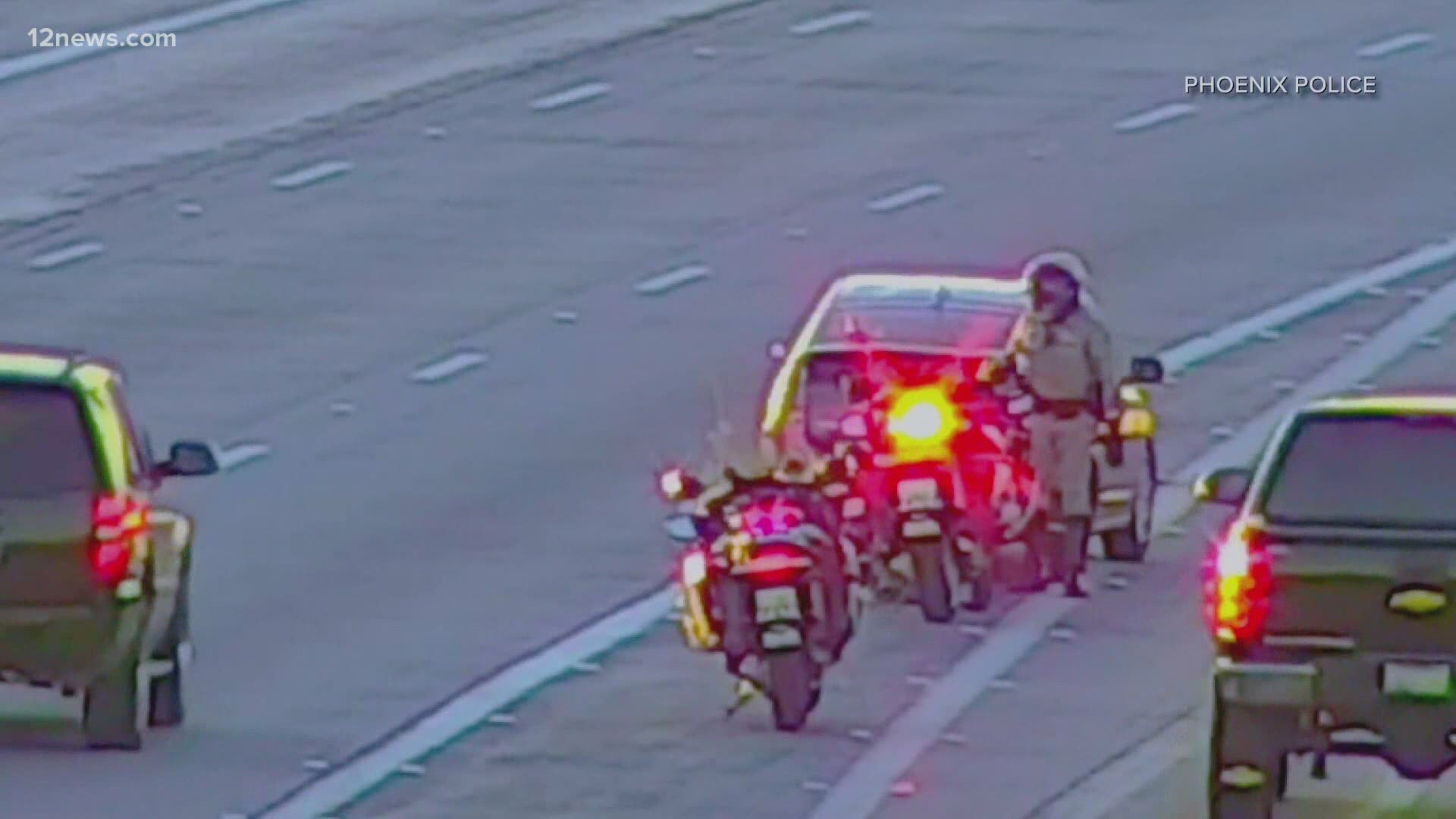PHOENIX — People across the country and here in Phoenix continue to mourn and some are divided with public outcry over the shooting deaths of Breonna Taylor in Louisville, Kentucky, and Dion Johnson in the Valley.
In both cases, the law enforcement officers were not equipped with body cameras and are not being charged in their deaths.
Maricopa County Attorney Allister Adel called for DPS to wear body cameras, calling it a matter of public concern following her decision not to criminally prosecute the trooper involved in Johnson's death.
“Body-worn cameras for uniformed officers in the field is just good policy,” Adel said. “I don’t know if it would have made a difference because we don’t have that information.”
Why doesn't one of the largest law enforcement agencies in the state have body cameras?
The simple answer is funding.
In a statement to 12 News, Gov. Doug Ducey's office said:
"The Governor advocated all session for this funding to equip every state trooper with a body-worn camera. If was included in his State of the State Address and Executive Budget Proposal. The pandemic upended the session, and a very narrow budget was passed to prepare for economic uncertainty. It's still a priority and something we're going to be working to get into the budget moving forward."
Prior to COVID-19, the governor's proposal included $5 million for 1,267 body cameras for DPS troopers. The proposal included $3 million for camera and $2 million for staff responsible for video retention and redaction services.
"It was top of our agenda to have body cameras for all officers in the Department of Public Safety and that remains a priority and that would have happened save COVID-19," said Ducey during his Thursday afternoon press conference.
State House Democrats and Republicans agree something needs to be done. In a tweet, Arizona Republican House Speaker Rusty Bowers said he's making body cameras and "other law enforcement funding matters a top priority in the next legislative session."


The tweet followed State District 21 Republican Representative Kevin Payne's tweet. "Body cameras can add a layer of accountability and protection for law enforcement and the public. As chair of the House Public Safety Committee, I am committed to providing a full and thorough examination of their technology & use in the next leg session."
House Democrat Representative Alma Hernandez agrees that the state needs to move to every law enforcement official operating with a body-worn camera.
“If we are trying to keep people safe in our communities, we have to make it a priority,” said Arizona District 3 Rep. Hernandez.
Hernandez introduced two separate bills last year surrounding body cameras. One for all law officials to be outfitted with cameras and the one for school resource officers.
Both Hernandez and Payne say there are high costs associated with storing the video content. "We can't continue to tell the public, sorry we don't have a recording of was occurred that day," said Hernandez. "My colleagues on the other side agree with me, we just have to figure out a way to fund it."
The Arizona Department of Public Safety is also in favor of body-worn camera funding. On any given day there are 600+ troopers patrolling across the state. DPS tells 12 News they currently have 122 patrol vehicles equipped with dashcam video and around 20 body-worn cameras secured through grants outside of the State legislature. The department says troops patrolling in the Navajo Nation wear five body cameras purchased with grant funding.
DPS says the department is still feeling the impact from the 2008 recession and many of their communication towers are 50-plus years old and have been neglected due to a lack of funding.
"We get what we get," said DPS Public Information Officer Kameron Lee.

